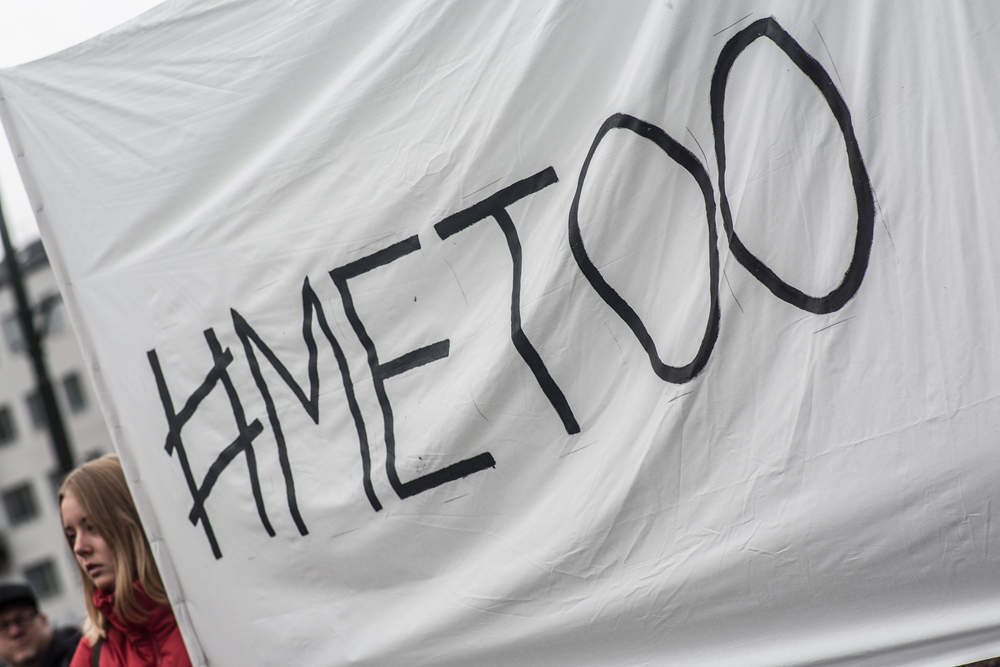
The #metoo testimonials that flooded social media in recent weeks have made their leap from the virtual world to reality across Europe.
In Paris last weekend a demonstration, organised through an event on Facebook made by freelance journalist Carol Galand, saw around 60,000 people, mostly women, come together to protest sexual harassment and assault.
Good turnout at the #MeToo in real life protest in Paris where French women victims of sexual harassment speak out. pic.twitter.com/BLc2VOeuhY
— Victoria Baux (@toriabo) October 29, 2017
Signs carried by thousands of women carried the message #MeToo, while others revealed details of their experience — “Metoo, I was 19 years old” and “Metoo, by a colleague”.
How well do you really know your competitors?
Access the most comprehensive Company Profiles on the market, powered by GlobalData. Save hours of research. Gain competitive edge.

Thank you!
Your download email will arrive shortly
Not ready to buy yet? Download a free sample
We are confident about the unique quality of our Company Profiles. However, we want you to make the most beneficial decision for your business, so we offer a free sample that you can download by submitting the below form
By GlobalDataAnecdotes using #metoo and #BalanceTonPorc — which roughly translates to “rat out your pig” — have been published online by thousands of women from all over the world since the start of October, after Hollywood was rocked by a series of allegations against movie mogul Harvey Weinstein.
Galand said she wanted to ensure the campaign to end sexual violence and harassment of women went “beyond the social media buzz”.
Galand told Verdict the event had been a great success and was “extremely important”.
She said:
We have made a “#metoo Testimonies” page on Facebook which hopes to encourage victims of sexual harassment to explain why they never made a complaint, or what happened when they made one. We will then send these testimonies to public authorities to help them understand the problems, in order to then improve the situation.
Rassemblement #metoo contre le #harcèlement place de la Republique à #Paris | #wetoogether #moiaussi #balancetonporc pic.twitter.com/4gMYD0fMcN
— znowx (@znowx) October 29, 2017
Fatima Benomar, who is a spokesperson for Les Effrontées, a feminist and LGBT organisation, said the demonstration was important in order to raise awareness to the extent of the sexual harassment problem within society, which is largely undermined.
Let’s get out of the social networks, and go out on the streets to show those individuals who aren’t on Facebook that there are thousands of us that have to live with, put up with, come to terms with, and manage these often traumatic experiences.When there has been a high profile case, such as Baupin or DSK, awareness of the issue increases.
And then, two months later, we talk about other things. Wahey, just like that it’s all cleared up. This event is important because women hear stories from other women. They discovered they were not alone in this situation.
Men were also invited to take part in the rally, despite some reluctance from a number of women.
The organisers of the event called on men to behave as “vigilant allies” … “with the utmost discretion and respect for the victims”. They had also planned single-sex zones and women’s speaking groups.
Following the rally, French feminists have said they believe the #metoo campaign could mark a turning point in attitudes towards sexual predation, which has long been viewed as a minor issue.
There were further protests in Paris after the #MeToo march as journalists and demonstrators protested an exhibition of the work of director and accused sexual assaulter, Roman Polanski at the Cinémathèque Français.
Photographs and videos emerged on Twitter showing the director, who reportedly knew about the protest in advance, being ushered through walls of demonstrators to attend the opening.
(WARNING EXPLICIT) Watch Femen activists protest an event honoring director and convicted child rapist #Polanski pic.twitter.com/4YrczMxlps
— Vlademir Pikachu (@kutahyaajans43) October 31, 2017



